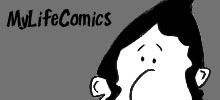 Dune by Frank Herbert
Dune by Frank HerbertA quick summary stolen from the back cover: Here is the novel that will forever be considered a triumph of imagination. Set on the desert planet Arrakis, Dune is the story of the boy Paul Atreides, who would become the mysterious man known as Muad'Dib. He would avenge the traitorous plot against his noble family--and would bring to fruition humankind's most ancient and unattainable dream.
A stunning blend of adventure and mysticism, environmentalism and politics, Dune won the first Nebula Award, shared the Hugo Award, and formed the basis of what is undoubtedly the grandest epic in science fiction.
How I'd sum it up to another reader: It's the story of a boy believed to be the One, you know, the legendary Muad'Dib that will lead the Fremen of Arrakis to freedom. Plus, take revenge on those that sought to destroy his father and family. There's some sandworms and drugs and dueling, along with the creepy child and even creepier telepathy power scenes. Still, from the get go, Herbert lays the foundation of what is to happen and sees it through all the way to the end.
The cover sez and shows: An aerial shot that would make the Discovery Channel proud of some sand and a few people shuffling about in it. Lots of black, and then there's the word dune all nice, right justified, and purple. Evidently, this is a masterpiece as well. A supreme one, eh?
Number of dragons, wizards, and reluctant farmer boys: Absolutely zero unless folks out there would like to argue whether Mentats or Bene Gesserits are considerably wizardly. I'd say no, but that's just me. And sandworms are not dragons though I'd love to see a battle between such things, oh yesh. A fanboy can dream...
Hardest name to pronounce in my head: Surprisingly, and I mean really, really surprisingly, nothing too difficult here. Sure, I found myself stumbling over Paul-Muad'Dib and Thufir Hawat occasionally, but not even Lisan al'Gaib or Gaius Helen Mohiam could give me pause. That's right, nothing can stop me now!
Best part: Besides a main character named Paul that is more than emperor material? I dunno. The Baron Vladimir Harkonnen is kind of kickass...in a cruel way. He's the sort of villain you love to hate. And not just because he has a vividly obvious sexual love for young men. His death (spoiler on a forty-year-old book!), sort of fitting, mostly awesome.
Worst part: Initially, I was really put off with the fact that we could be in every character's head all at once, but slowly got over it. I didn't like Jessica thinking about traitors in one paragraph to have Hawat revealing a deep secret in the next. Then, towards the end, I just found it annoying. I guess I would've liked a little more mystery.
Random thoughts and theories: I still don't know if I fully understand Bene Gesserit. The women in Dune are so cold and bitter, even Chani who Paul will come to love. Despite the women having a lot of Mentat powers, this is a very manly book. Men are the leaders, men give the orders, women are not to be trusted blah blah blah. Plus, Fremen adopting a sick tradition of cannibalism by taking a dead's "water" freaked me out. Truthfully, it might never stop freaking me out.
If said book could smell like any scent: Spice, spice, spice! Orange melange! The beach! SAND!!! Man, this one was too easy to answer.
If said book was a ride in Disneyland it would go like so: It would totally be a roller coaster. First, you wait in line with a bunch of blue-eyed freaks then, after swiping your ticket, you run across a heap of sand and hop into a maker (a.k.a. sandworm) cart and go from 0 to 70 mph in under four seconds.
If in school its grade would be: B+
Come on, write us a haiku:
The Voice, making him
Steer the maker, go Paul go
Spice is really nice
Overall, y'all: I really liked the world of Arrakis and its politics, but found everything fairly slow going. The story is mostly a big buildup to an end that has already been revealed to the reader by the prophecy that goes along with Muad'Dib. Too much focus on superfluous thoughts and constant questioning of everyone's intentions. Still, Dune is what it is--a classic coming-of-age story where science extends itself beyond the reach of imagination and giant spice-producing worms control the sands. It wasn't exactly what I was expecting, what with all the omniscience, but still a solid read that every fan of science fiction should tackle at some point or another.
Books I might or might not compare to: Er, other Dune books most likely, maybe Grass! by Sheri S. Tepper
Some linkage: Behind the scenes stuff, or, more matter to the point, everything you might ever need to know about Herbert's world




No comments:
Post a Comment